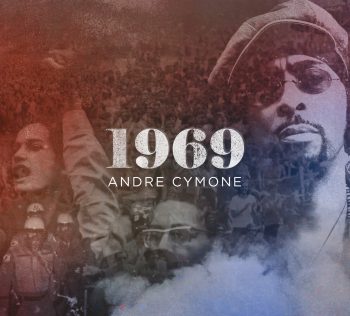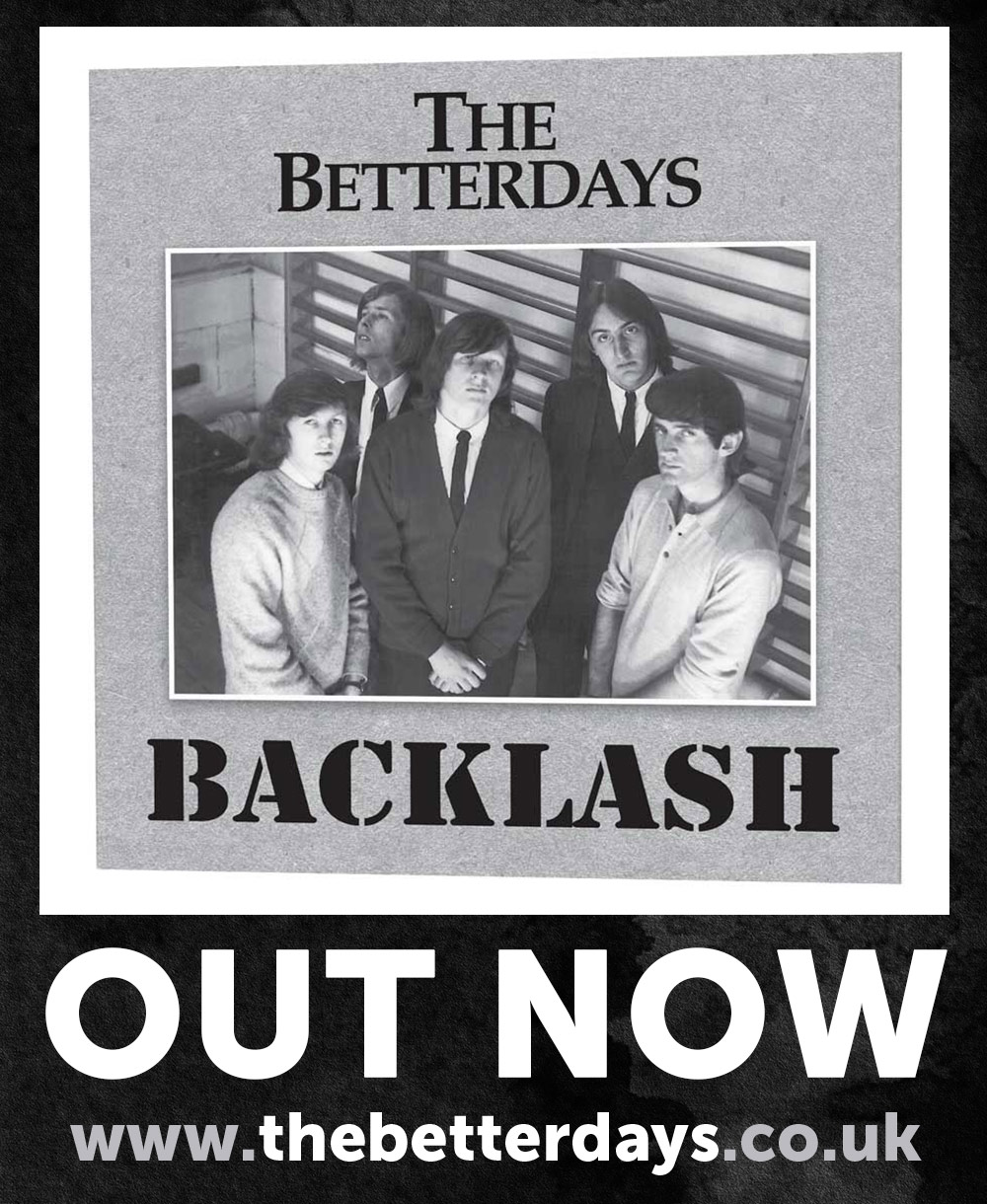 (4 / 5)
(4 / 5)
Former Prince school friend and band-mate Andre Cymone has had a pretty successful career as a bassist, songwriter, solo artist and producer for some of the biggest names in music. Bassist for Prince’s band pre-Revolution, from the late 1970s to 1981.
He stepped away from the spotlight to bring up his children. But he’s back, with a super new album, “1969”, a title that may well wrongly lead one to think this is a retro, nostalgia-soaked trip down memory lane.
But the songs on these dozen cuts are very much writing about today, with parallels drawn between what was happening in 1969 and the same stuff happening now, the very same issues being the influence in the song writing here. Having just seen the powerful and pretty upsetting Katherine Bigelow movie “Detroit,” about the murder of three black teenagers by the police in 1969, this record particularly hit home with me.
A big clue here is “Black Lives Matter”, track # 8 and “Black Man In America,” track # 10. This is a deeply compelling musical statement; the work of a passionate idealist confronting the brutal disappointments of the real world. Cymone’s emotion-charged lyrical insight, balances unflinching realism with an unmistakable sense of hope, addressing issues of racial and economic inequality. But it is not ramming a political message down your throat; it is very much an enjoyable “musical” album.
1969 marks a creative landmark in a long and colourful career, from Cymone’s early collaborations with Prince, solo successes in the eighties and his work as hit-maker for an assortment of notable pop and R&B acts. In 2014, Cymone ended a self-imposed 27-year recording hiatus with his album “The Stone”, the start of his self-reinvention.
The seed was sown for this latest album’s material, when Cymone’s father passed away and the artist returned to his hometown of Minneapolis to sort through his possessions. A musician, artist and an inventor, Cymone’s father kept a collection of press cuttings, everything that was newsworthy through the decades. This was an invaluable source of social history for Andre, and through which he saw parallels between what was going on then, and what we’re dealing with and makes the news headlines almost daily now. The experience sparked an outpouring of new songs, which Cymone and his band recorded while the material was still fresh, emphasising the energy and immediacy of live-in-the-studio performance. He channelled his favourite era for music, the 1960s, reflecting that vibe without it being retro.
Raised in a politically and musically engaged family in Minneapolis, Cymone grew up with an interest in socio-political issues and a burning desire to express himself through music. He found a kindred spirit in his schoolmate Prince, and the two began playing in bands together in their teens, laying the groundwork for the revolutionary Minneapolis sound. In the early ’80s, Cymone broke away from Prince’s band to launch a solo career, releasing three well-received albums on the Columbia label: “Livin’ in the New Wave”, “Survivin’ in the ’80s” and “AC”, whose new wave/funk fusion spawned half a dozen hit R&B singles, including 1985’s Prince-penned Top Ten hit “The Dance Electric.”
Cymone also established himself as an in-demand producer, overseeing a series of successful releases by a diverse array of acts including Jody Watley, Tom Jones, Pebbles, Adam Ant, Jermaine Stewart and Evelyn “Champagne” King. But in the late 1980s, he packed it all in to focus on raising his children, while channelling his creative urges into a variety of writing projects.
All fired up again since his come-back album release three years ago, he makes a big point that this music is really “me”, and not driven by chasing sales, chart places or radio airplay, as may have been the case back in the day. “Maybe this sounds crazy, but I didn’t really get it before,” Cymone concludes. “I knew how to write and I knew how to play, but the light bulb hadn’t gone off yet. I had bought into all this crazy stuff about getting on the radio and fitting into somebody else’s idea of who I was supposed to be. And once I realised that none of that stuff matters, the songs just started pouring out, and since then I’ve never looked back. Once I let all that stuff go, that’s when I became an artist. And I still feel like I’m just getting started.”
The album was produced by Andre and Joel Soyffer. The band are: Nick Adams on drums, Clark Dark on bass, Chris Vasquez and Devon Ian Pangle on guitar and Andre Cymone on lead guitar and vocal – plus, he plays bass on seven of the dozen cuts.
The Opener “We All Need Somethin” is a driving, rockin’ Stones-ish affair, and the second cut in, “Money” maintains the rocker vibe and the pace, with grunged up guitars and distorted vocal effect, all sat on a ballsy drum track. Jimi Hendrix flavours on “California Way”, lots of reverb on the vocal, but the guitar tone doesn’t sound aggressive and “fat” enough to match the hard hitting rest of the track. “Already There”, takes us to rockabilly territory before the best vocal thus far, on “Breathin’ Out Breathin’ In”, also the strongest piece of songwriting at this point.
Early Stones and Dylan springs to mind on “It’s Rock And Roll, Man”, with some gorgeous innate blues guitar licks from Andre, channelling Keef. The tracks “Point And Click”, and “It Ain’t Much” didn’t do much for me, to be honest. But “Black Lives Matter” which slows thing down and is a stripped down moment – with nice 12-string acoustic guitar and a bit of a Dylan-esque/Jagger vocal approach, gives an emotion-soaked vocal delivery, with some superb higher end of his register and self-sung close harmonies, that do lean towards his late mate Prince’s sweet sound. Some nice light and shade with this cut, from the more rockin’ numbers.
Loved the almost tango groove on “Black Man In America”, and the classy way he’s handled the sensitivity of the topic in the lyrical content. One of the best cuts of the set. The chants of “No justice, no peace” add real edgy atmosphere. The title cut, “1969”, precedes a real cracker for the closer, “Is That You” and very much James Marshall Hendrix territory.
I was expecting a heavy dose of funk and soul, and plenty of Prince nods, with this album. It’s actually nothing like any pre-conceived idea. This is the sound of a man whose been there and done it, perhaps got disillusioned with all the BS and office politics of the music business, to prompt a change of career and an almost three-decade lay off. Who now makes music that he wants to make without many other considerations. If we dig it, great. If we don’t, he’ll do it anyway. The way it really should be for all artists, but rarely is these days.
By Simon Redley
 (1 / 5) ‘Dull Zone’
(1 / 5) ‘Dull Zone’ (2 / 5) ‘OK Zone’
(2 / 5) ‘OK Zone’ (3 / 5) ‘Decent Zone’
(3 / 5) ‘Decent Zone’ (4 / 5) ‘Super Zone’
(4 / 5) ‘Super Zone’ (5 / 5) ‘Awesome Zone’
(5 / 5) ‘Awesome Zone’





